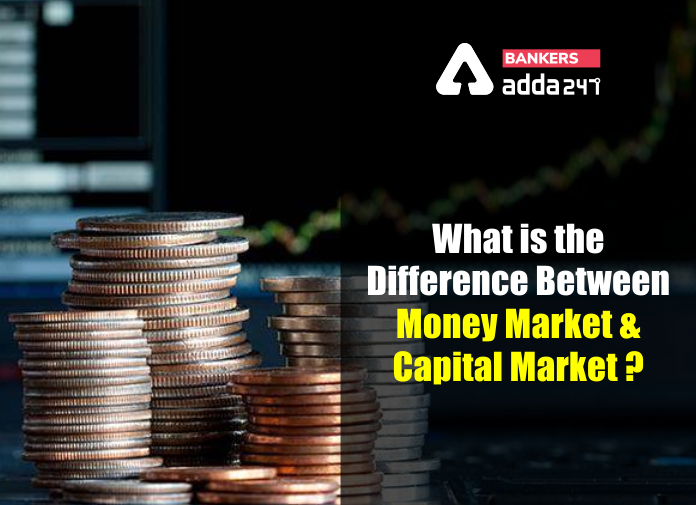A financial market is a place where buyers and sellers come together to trade in financial assets such as bonds, stocks, derivatives, currencies, and commodities. There are various components of the financial market, Money market and Capital market are also components of the financial market. Before going ahead let’s try to understand what is money market and what is the capital market. After getting the meaning of these two terms will understand the difference between the Money market and the capital market.
A money market is a component of the financial market where short-term financing can be issued. The important money market instruments in India are call money, commercial papers, certificates of deposit, treasury bills, and forward rate agreements. the money market holds a range of operational characteristics.
A capital market is a component of a financial Market, It allows long term trading of Debt and Equity-based securities. Capital Market plays a significant role in the growth of the country’s economy as it provides a platform for mobilizing the funds one of the best examples of the capital market is the NYSE or the New York Stock Exchange.
What is the Difference between Money Market and Capital Market?
| Charactristics | Money Market | Capital Market |
| Definition | A random course of financial institutions, dealing on short-term financial tools are referred to as Money Market | A kind of financial market where the company or government securities are generated the intention of establishing long-term finance to coincide with the capital necessary is called as Capital Market |
| Nature | Money markets basically are informal in nature | Capital markets are formal in nature |
| Instruments involved | Commercial Papers, Treasury Certificate of Deposit, Bills, Trade Credit, etc | Bonds, Debentures, Shares, Asset Securitization, Retained Earnings, etc |
| Investor Types | Commercial banks, non-financial institutions, central bank, chit funds etc | Stockbrokers, insurance companies, Commercial banks, underwriters etc |
| Market Liquidity | Money markets has high liquidity | Capital markets are comparatively less liquid |
| Risk | Money markets have low risk | Capital markets are more riskier in comparison to money markets |
| Maturity of Instruments | Mature in shorter period | Takes long period to mature |
| Purpose served | To achieve short term credit requirements of the trade. | To achieve long term credit requirements of the trade. |
| Functions served | Increasing liquidity of funds in the economy | Stabilizing economy |
| Return on investment achieved | ROI is usually low in money market | ROI is comparatively high in capital market |
Click Here to Register for Bank Exams 2020 Preparation Material
Check updates related to notification, vacancies, eligibility, exam pattern, syllabus and more related to upcoming bank and insurance exams 2020:
| SBI PO 2020 | IBPS PO 2020 | SBI Clerk 2020 | IBPS Clerk 2020 |
| RBI Grade B 2020 | RBI Assistant 2020 | LIC AAO & AE | SEBI Grade A 2020 |




 Weekly Current Affairs One Liners 23rd t...
Weekly Current Affairs One Liners 23rd t...
 CSIR CRRI Typing Test 2025 Date for JSA ...
CSIR CRRI Typing Test 2025 Date for JSA ...
 Can Final Year Students Apply for SBI PO...
Can Final Year Students Apply for SBI PO...


